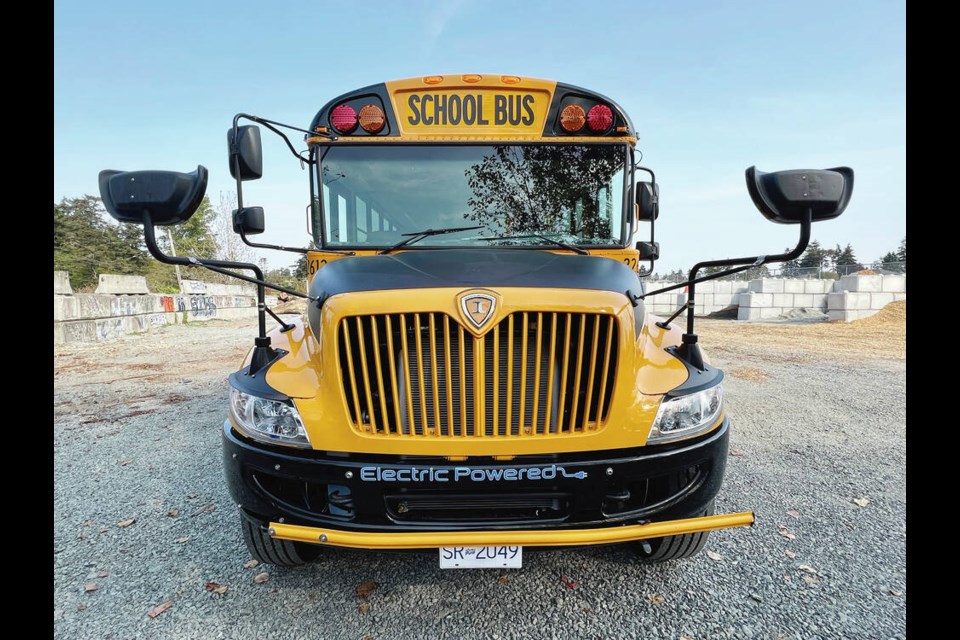The Greater Victoria School District has added four electric school buses to its fleet.
The new buses, which can travel 200 kilometres on a single battery charge, require less maintenance and fewer repairs than their conventional counterparts.
The cost of a battery charge is about $13, while the cost of enough fuel to travel 200 km is $178, the district said.
The zero-emission vehicles will be used for field trips or for students who live within their school-catchment areas but are outside of walking limits.
Shifting to electric buses contributes to the district’s goal to reduce its fleet’s greenhouse gas emissions by 40 per cent by 2030, said Greater Victoria School Board chairman Ryan Painter.
Students are calling on leaders to do something to ensure “a safe and livable planet for their futures” and electric buses are a step in that direction, district superintendent Deb Whitten said.
Funding for the buses came from the Ministry of Education, the Ministry of Energy, Mines and Low Carbon Innovation and federal grants for bus electrification.
The Sooke School District was the first in B.C. to add two electric buses in 2021. The buses each cost $357,500 — significantly more than diesel buses, which cost the district about $150,000 apiece.
The district’s share of the overall cost was about 30 per cent.
B.C. Transit plans to have a fully electric fleet by 2040. California-based Proterra Operating Co. Ltd. has a $20-million contract to supply electric buses to B.C. Transit, with the federal and provincial governments each covering 40 per cent and the rest coming from the Victoria Regional Transit Commission.
The electric buses will be about a foot longer than conventional, 40-foot-long models, but B.C. Transit has had buses that size in the past. The B.C. Transit electric buses will have a driving range of 350 to 500 kilometres, depending on conditions.
>>> To comment on this article, write a letter to the editor: [email protected]



